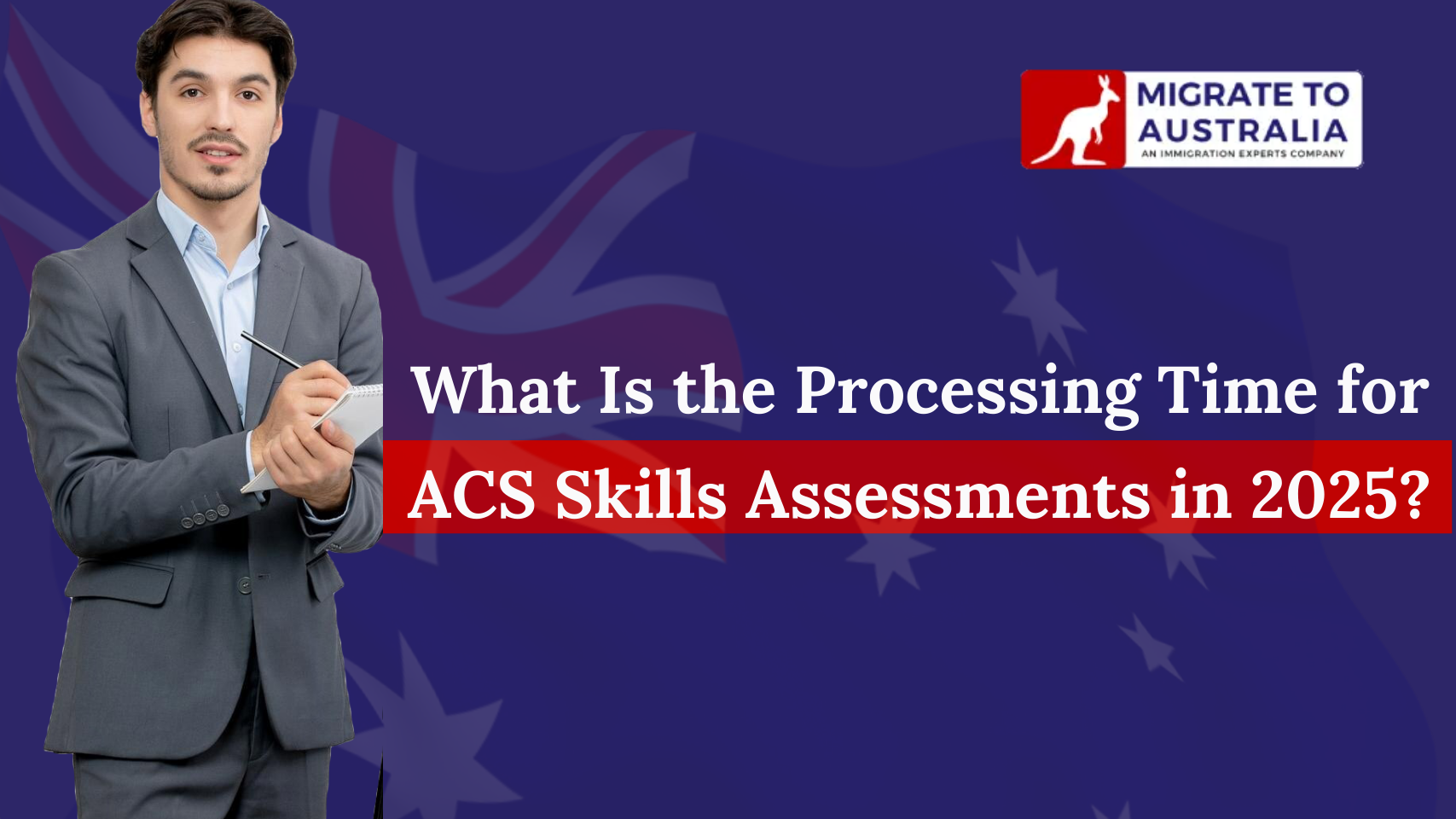For those aspiring to migrate to Australia, obtaining a positive skills assessment is a crucial step in the process. The Australian Computer Society (ACS) is the Assessment Authority responsible for evaluating skills and qualifications for IT professionals seeking migration to Australia. Understanding the ACS migration assessment timeline is essential for applicants to plan their migration journey effectively.
This blog delves into the expected processing time for ACS skills assessments in 2025, compares it with other authorities like VETASSESS and AITSL, and offers tips to streamline the process for those eager to start a new chapter in Australia.
What Is the ACS Migration Assessment?
The ACS migration assessment evaluates an applicant’s educational qualifications and professional experience in the IT field. It determines if an individual’s skills align with Australian standards and match the occupational classifications on the Skilled Occupation List (SOL).
This assessment is mandatory for IT professionals applying for skilled visas such as the General Skilled Migration (GSM) visa subclasses, including the 189, 190, and 491 visas.
Processing Time for ACS Skills Assessments in 2025
As of 2025, the ACS migration assessment processing time is generally between 8 to 12 weeks from the date of application submission. However, this timeframe can vary based on factors such as:
- Completeness of Application: Providing all required documents, including certified copies and translations, ensures faster processing. Missing or incomplete information can lead to delays.
- Volume of Applications: Periods of high demand, such as before policy changes or during peak migration periods, may extend processing times.
- Complexity of Cases: Applications requiring additional verification or assessment of unusual qualifications or work experience may take longer.
- Fast-Track Options: While the ACS does not explicitly offer a fast-track service, some other Assessment Authorities, like VETASSESS, have expedited options. It’s advisable to check the ACS website for updates on any such offerings in 2025.
Comparison with Other Assessment Authorities
While the ACS is the primary Assessment Authority for IT professionals, other bodies evaluate skills in different fields. Here’s how ACS compares to VETASSESS and AITSL in terms of processing time:
- VETASSESS
- Covers a wide range of occupations across various industries.
- Processing time: Typically 10 to 12 weeks, with an option for Priority Processing (5–10 business days).
- Ideal for applicants outside the IT domain seeking to migrate to Australia.
- AITSL (Australian Institute for Teaching and School Leadership)
- Specializes in assessing teaching qualifications and experience.
- Processing time: Approximately 10 weeks.
- Critical for teachers aiming to migrate to Australia.
While ACS processing times are similar to those of VETASSESS and AITSL, IT professionals should focus on ensuring their ACS application is complete and error-free to avoid delays.
Key Requirements for ACS Migration Assessment
To ensure smooth processing, applicants must meet the following criteria:
- Educational Qualifications: A recognized qualification in IT or a closely related field is essential. Non-IT degrees may require additional experience for consideration.
- Relevant Work Experience: Applicants must demonstrate work experience aligned with the chosen occupation, generally over two to four years depending on qualifications.
- Documentation
- Certified copies of academic transcripts and degrees.
- Employment references detailing duties, responsibilities, and employment duration.
- Proof of paid employment (payslips, tax documents).
- English Language Proficiency: While not assessed directly by the ACS, meeting visa requirements often necessitates an IELTS or PTE score.
By adhering to these requirements, applicants can increase the likelihood of a positive assessment within the standard ACS migration timeframe.
Tips to Expedite the ACS Migration Assessment Process
- Prepare Thoroughly: Organize all required documents in advance, ensuring they meet the ACS guidelines.
- Double-Check Submissions: Avoid delays caused by incomplete or inaccurate submissions by carefully reviewing your application.
- Use a Migration Agent: Engaging a migration agent or consultant with expertise in ACS migration assessments can help streamline the process and avoid pitfalls.
- Monitor ACS Updates: The Australian Computer Society periodically updates its guidelines. Stay informed to ensure your application aligns with the latest standards.
- Consider Related Pathways: If your occupation is assessed by another authority like VETASSESS, compare processing times and requirements to choose the most efficient pathway.
Why Is the ACS Migration Assessment Crucial?
The ACS migration assessment is more than a mere formality—it is a cornerstone of your migration journey. A positive outcome opens doors to skilled visas, leading to opportunities to live and work in Australia. Additionally, ACS assessments are recognized for various visa pathways, making them indispensable for IT professionals aiming to build a future in Australia.
What Happens After the ACS Assessment?
Once the ACS provides a positive assessment, applicants can proceed with lodging an Expression of Interest (EOI) through SkillSelect. The next steps involve receiving an invitation to apply for a visa, undergoing health and character checks, and meeting other visa requirements.
Conclusion
The ACS migration assessment is a critical step for IT professionals planning to migrate to Australia. With a typical processing time of 8 to 12 weeks in 2025, applicants must plan meticulously and meet all requirements to avoid delays. Comparing ACS timelines with other authorities like VETASSESS and AITSL helps applicants choose the most efficient route for their skills assessment.
By staying proactive, preparing thoroughly, and leveraging professional guidance when needed, applicants can navigate the assessment process with confidence. The dream of living and working in Australia is achievable with the right approach to your skills assessment journey.

